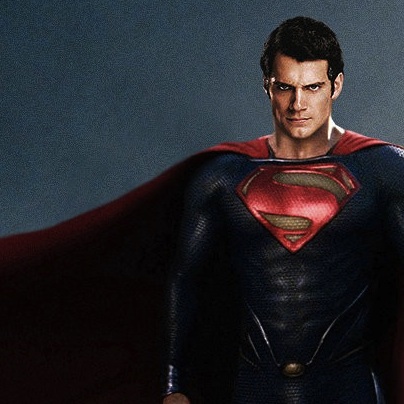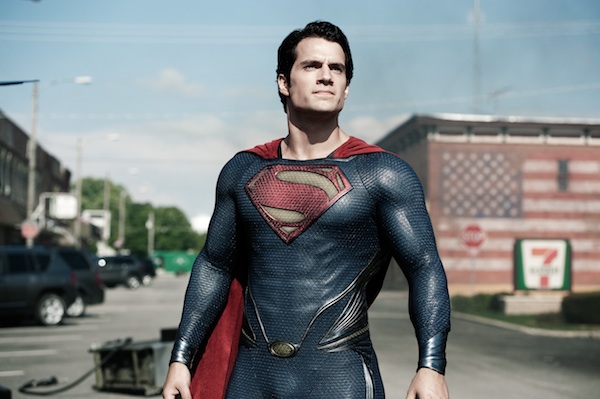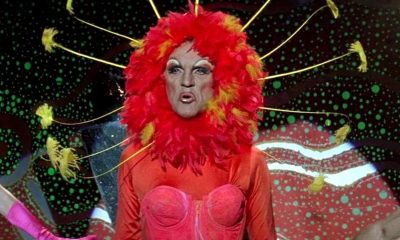Arts & Entertainment
Franchise fizzle?
Successful Superman reboot proves elusive with limp ‘Man of Steel’

In a 21st-century dominated by multi-dimensional heroes like Batman and Iron Man, the Superman franchise conjures up feelings of all-American nostalgia more than anything. Zack Snyder, director of “Man of Steel,” attempts to depart from this in his summer blockbuster, but does not replace it with anything more substantial leaving us essentially with another explosion extravaganza but little else.
Henry Cavill is a promising actor, but his performance as the extra-terrestrial from Krypton is not for one second believable. Cavill seems most comfortable during the beginning of the film, which due to production by Christopher Nolan (who also did the “Batman” franchise), is a lengthy and morose sequence of fragmented scenes that document Clark Kent’s self-discovery. Nolan’s influence makes Superman’s clearly demarcated sense of good and evil feel unnatural and all too simple.
Cavill brings too much rugged sex appeal to the role, making him more reminiscent of Hugh Jackman’s portrayal of Wolverine in “X-Men” than of someone who would wear a red cape in all seriousness.
It’s a tough role to pull off — while Brandon Routh in 2006’s “Superman Returns” arguably captured the role better with his more innocent approach, it clearly wasn’t strong enough to have led to a successful franchise. Cavill is intriguing, dynamic and has undeniable charisma, yet it feels like he’s holding back as the script gives him little to work with in terms of characterization or complexity. While Cavill’s performance leaves some things to be desired, he isn’t ultimately to blame for the film’s shortcomings.
“Man of Steel” opens with a home-birth on Krypton as the planet is self-destructing. Russell Crowe goes through the motions as Jor-El, baby Kal-El’s father, who rockets his son to Kansas to preserve his race. General Zod (Michael Shannon) is introduced as the film’s forgettable villain as he attempts to steal Krypton’s Codex — a log of the planet’s genetic information — from Kal-El, which remains a theme for the entirety of the movie as Zod threatens to reconfigure earth into a new Krypton at humanity’s expense.
Unfortunately, the dialogue in “Man of Steel” is as melodramatic and bland on earth as it is on Krypton. (The film’s writer, David S. Goyer, clearly is not afraid of clichés.) For the first hour, scenes jump from school buses and cornfields in Kansas to Arctic tundra with little context given, and some sort of loud catastrophe quickly interrupts any conversation that seems like it will reveal something about the characters.
Diane Lane and Kevin Costner do a perfectly satisfactory job as Clark Kent’s adoptive parents. Amy Adams, however, never seems invested in her role as reporter and love interest, Lois Lane. Adams practically sleepwalks through life or death scenes, and her kiss with Clark Kent toward the end of the movie is awkward and forced. It’s not that Adams and Cavill lack the ability to portray a believable romance; they simply do not have the script to do so, even though “Man of Steel” is an origins story that should make the audience feel attached to its characters.
The majority of the film feels like a confusing dream of drawn-out action scenes. It becomes all too easy to forget who is fighting whom, and for what reason, as Cavill darts through the air. “Man of Steel’s” shining moments are the interspersed scenes of Superman’s childhood, with a young Clark Kent played by Dylan Sprayberry and Cooper Timberline. Both actors do a fine job capturing Kent’s teen angst, sense of alienation and repressed desire to use his powers for good in a world that would not accept him.
Even though “Man of Steel” is a long 143 minutes, it goes by quickly, perhaps due to Hans Zimmer’s overpowering score and the confusion caused by Snyder’s non-linear plot. In the film’s defense, it’s difficult to create a Superman story that appeals to contemporary America. Superman’s unwavering sense of right and wrong fit so well during the Cold War, but now his narrative seems naive with more widespread recognition of the country’s internal issues and fear that its global supremacy is waning.
“Man of Steel” ends with the promise of a sequel as Cavill puts on Clark Kent’s endearingly nerdy glasses. Perhaps without the need to jumble together a creation story, it’s more likely Snyder will pull off a sequel should this chapter’s box office take justify it.
Books
Love or fear flying you’ll devour ‘Why Fly’
New book chronicles a lifetime obsession with aircraft

‘Why Fly’
By Caroline Paul
c. 2026, Bloomsbury
$27.99/256 pages
Tray table folded up.
Check. Your seat is in the upright position, the airflow above your head is just the way you like it, and you’re ready to go. The flight crew is making final preparations. The lights are off and the plane is backing up. All you need now is “Why Fly” by Caroline Paul, and buckle up.

When she was very young, Paul was “obsessed” with tales of adventure, devouring accounts written by men of their derring-do. The only female adventure-seeker she knew about then was Amelia Earhart; later, she learned of other adventuresome women, including aviatrix Bessie Coleman, and Paul was transfixed.
Time passed; Paul grew up to create a life of adventure all her own.
Then, the year her marriage started to fracture, she switched her obsession from general exploits to flight.
Specifically, Paul loves experimental aircraft, some of which, like her “trike,” can be made from a kit at home. Others, like Woodstock, her beloved yellow gyrocopter, are major purchases that operate under different FAA rules. All flying has rules, she says, even if it seems like it should be as freewheeling as the birds it mimics.
She loves the pre-flight checklist, which is pure anticipation as well as a series of safety measures; if only a relationship had the same ritual. Paul loves her hangar, as a place of comfort and for flight in all senses of the word. She enjoys thinking about historic tales of flying, going back before the Wright Brothers, and including a man who went aloft on a lawn chair via helium-filled weather balloons.
The mere idea that she can fly any time is like a gift to Paul.
She knows a lot of people are terrified of flying, but it’s near totally safe: generally, there’s a one in almost 14 million chance of perishing in a commercial airline disaster – although, to Paul’s embarrassment and her dismay, it’s possible that both the smallest planes and the grandest loves might crash.
If you’re a fan of flying, you know what to do here. If you fear it, pry your fingernails off the armrests, take a deep breath, and head to the shelves. “Why Fly” might help you change your mind.
It’s not just that author Caroline Paul enjoys being airborne, and she tells you. It’s not that she’s honest in her explanations of being in love and being aloft. It’s the meditative aura you’ll get as you’re reading this book that makes it so appealing, despite the sometimes technical information that may flummox you between the Zen-ness. It’s not overwhelming; it mixes well with the history Paul includes, biographies, the science, heartbreak, and exciting tales of adventure and risk, but it’s there. Readers and romantics who love the outdoors, can’t resist a good mountain, and crave activity won’t mind it, though, not at all.
If you own a plane – or want to – you’ll want this book, too. It’s a great waiting-at-the-airport tale, or a tuck-in-your-suitcase-for-later read. Find “Why Fly” and you’ll see that it’s an upright kind of book.
The Blade may receive commissions from qualifying purchases made via this post.
Theater
Out actor Kevin Cahoon on starring role in ‘Chez Joey’
Arena production adapted from Broadway classic ‘Pal Joey’

‘Chez Joey’
Through March 15
Arena Stage
1101 Sixth St., S.W.
Tickets start at $93
Arenastage.org
As Melvin Snyder in the new musical “Chez Joey,” out actor Kevin Cahoon plays a showbiz society columnist who goes by the name Mrs. Knickerbocker. He functions as a sort of liaison between café society and Chicago’s Black jazz scene circa 1940s. It’s a fun part replete with varied insights, music, and dance.
“Chez Joey” is adapted from the Broadway classic “Pal Joey” by Richard Rodgers and Lorenz Hart. It’s inspired by John O’Hara’s stories based on the exploits of a small-time nightclub singer published in The New Yorker.
A warm and humorous man, Cahoon loves his work. At just six, he began his career as a rodeo clown in Houston. He won the Star Search teen division at 13 singing songs like “Some People” from “Gypsy.” He studied theater at New York University and soon after graduating set to work playing sidekicks and comedic roles.
Over the years, Cahoon has played numerous queer parts in stage productions including “Hedwig and the Angry Inch,” “La Cage aux Folles,” “Rocky Horror” as well as Peanut in “Shucked,” and George the keyboardist in “The Wedding Singer,” “a sort of unicorn of its time,” says Cahoon.
Co-directed by Tony Goldwyn and the great Savion Glover, “Chez Joey” is a terrific and fun show filled with loads of talent. Its relevant new book is by Richard Lagravenese.
On a recent Monday off from work, Cahoon shared some thoughts on past and current happenings.
WASHINGTON BLADE: Is there a through line from Kevin, the six-year-old rodeo clown, to who we see now at Arena Stage?
KEVIN CAHOON: Anytime I want to land a joke in a theater piece it goes back to that rodeo clown. It doesn’t matter if it’s Arena’s intimate Kreeger Theatre or the big rodeo at the huge Houston Astrodome.
I was in the middle stadium and there was an announcer — a scene partner really. And we were doing a back and forth in hopes of getting laughs. At that young age I was trying to understand what it takes to get laughs. It’s all about timing. Every line.
BLADE: Originally, your part in “Chez Joey” Melvin was Melba who sings “Zip,” a clever woman reporter’s song. It was sort of a star feature, where they could just pop in a star in the run of “Pal Joey.”
CAHOON: That’s right. And in former versions it was played by Martha Plimpton and before her Elaine Stritch. For “Chez Joey,” we switched gender and storyline.
We attempted to do “Zip” up until two days before we had an audience at Arena. Unexpectedly they cut “Zip” and replaced it with a fun number called “I Like to Recognize the Tune,” a song more connected to the story.
BLADE: Wow. You must be a quick study.
CAHOON: Well, we’re working with a great band.
BLADE: You’ve played a lot of queer parts. Any thoughts on queer representation?
CAHOON: Oh yes, definitely. And I’ve been very lucky that I’ve had the chance to portray these characters and introduce them to the rest of the world. I feel honored.
After originating Edna, the hyena on Broadway in “The Lion King,” I left that to do “Hedwig and the Angry Inch” as standby for John Cameron Mitchell, doing one show a week for him.
Everyone thought I was crazy to leave the biggest musical of our time with a personal contract and getting paid more money that I’d ever made to get $400 a week at the downtown Jane Street Theatre in a dicey neighborhood.
At the time, I really felt like I was with cool kids. I guess I was. And I never regretted it.
BLADE: When you play new parts, do you create new backstories for the role?
CAHOON: Every single time! For Melvin, I suggested a line about chorus boys on Lakeshore Drive.
BLADE: What’s up next for Kevin Cahoon?
CAHOON: I’m about to do the New York Theatre Workshop Gala; I’ve been doing it for nine years in a row. It’s a huge job. I’ll also be producing the “Cats: The Jellicle Ball” opening on Broadway this spring; it’s a queer-centric uptown vogue ball with gay actor André de Shields reprising his role as “Old Deuteronomy.”
BLADE: There’s a huge amount of talent onstage in “Chez Joey.”
CAHOON: There is. I’m sharing a dressing room with Myles Frost who plays Joey. He won accolades for playing Michael Jackson on Broadway. We’ve become great friends. He’s a miracle to watch on stage. And Awa [Sal Secka], a D.C. local, is great. Every night the audience falls head over heels for her. When this show goes to New York, Awa will, no doubt, be a giant star.
BLADE: Do you think “Chez Joey” might be Broadway bound?
CAHOON: I have a good feeling it is. I’ve done shows out of town that have high hopes and pedigree, but don’t necessarily make it. “Chez Joey” is a small production, it’s funny, and audiences seem to love it.

The Capital Pride Alliance held the annual Pride Reveal event at The Schuyler at The Hamilton Hotel on Thursday, Feb. 26. The theme for this year’s Capital Pride was announced: “Exist. Resist. Have the audacity!”
(Washington Blade photos by Michael Key)























-

 District of Columbia5 days ago
District of Columbia5 days agoCapital Pride board member resigns, alleges failure to address ‘sexual misconduct’
-

 India4 days ago
India4 days agoActivists push for better counting of transgender Indians in 2026 Census
-

 Advice4 days ago
Advice4 days agoDry January has isolated me from my friends
-

 District of Columbia4 days ago
District of Columbia4 days agoCapital Pride reveals 2026 theme





















